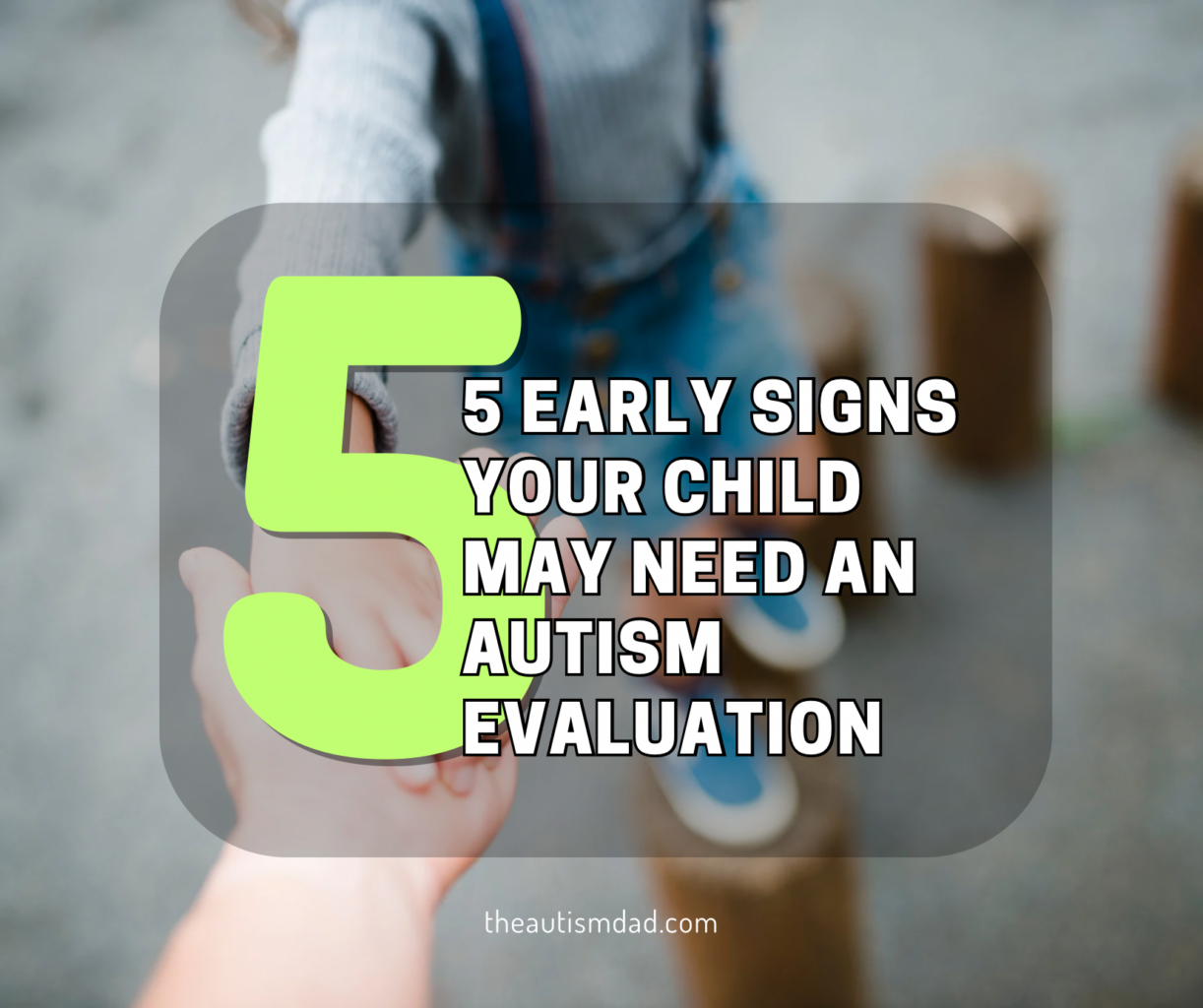As parents, we spend so much time observing and nurturing our kids, hoping to give them the best foundation in life. It’s normal to wonder if what we’re noticing is just a phase or something more. If you’ve ever felt that little nudge in your gut telling you that something feels “off,” you’re not alone. That feeling doesn’t mean anything is wrong—it simply means you care deeply and are tuned into your child’s development.
Today, I want to share some early signs that might indicate it’s time to consider an autism evaluation. This isn’t about labeling your child or jumping to conclusions; it’s about understanding their unique needs and getting support as early as possible.

1. Delayed or Absent Speech Development
Every child develops at their own pace, but there are milestones that serve as helpful benchmarks. If your child isn’t babbling by 12 months, using single words by 16 months, or stringing two words together by 24 months, it’s worth having a conversation with your pediatrician. Some children with autism may have speech delays, while others might develop speech but struggle with using it socially.
2. Lack of Social Engagement
Does your child avoid eye contact, seem uninterested in social interactions, or not respond to their name by the time they’re 12 months old? These behaviors can be subtle but meaningful signs. Social connection is a cornerstone of early childhood development, so it’s something to keep an eye on.
3. Repetitive Behaviors
Many young kids love routines and repetition, but repetitive behaviors in autism often go beyond the norm. For example, you might notice your child flapping their hands, rocking, spinning objects, or lining up toys instead of playing with them in a typical way. These behaviors can serve as a comfort or a way to process their environment.
4. Sensory Sensitivities
Children with autism often experience the world differently through their senses. This might show up as being overwhelmed by loud noises, bright lights, or certain textures, or it could be the opposite—appearing indifferent to pain, cold, or heat. Sensory challenges aren’t just quirks; they’re windows into how your child processes the world.
5. Difficulty with Play and Imagination
Pretend play is an important milestone in childhood development. If your child struggles to imitate others, engage in pretend play, or uses toys in repetitive or unconventional ways, it could be an early sign of autism. These behaviors might indicate that they view and interact with the world differently.
What Should You Do If You Notice These Signs?
If any of these signs feel familiar, the first step is to talk to your child’s pediatrician. You’re not overreacting or imagining things—your observations are valid, and your concerns deserve to be heard. Your pediatrician may recommend a developmental screening or refer you to a specialist for an evaluation.
Early intervention can make a world of difference. The earlier we understand how our children experience the world, the sooner we can give them the tools and support they need to thrive.
Helpful Resources
Here are some trusted organizations and medical institutions that offer resources, support, and guidance:
– Autism Society:
Provides information, advocacy, and support for families navigating an autism diagnosis.
– Cleveland Clinic – Autism:
A comprehensive resource for understanding autism spectrum disorder, including early signs and treatment options.
– Boston Children’s Hospital – Autism Spectrum Center:
Offers evaluations, therapies, and resources to support children and families living with autism.
– CDC – Learn the Signs. Act Early.:
Provides milestone checklists and resources to help track your child’s development and spot potential concerns.
– National Autism Association:
A parent-focused organization offering safety resources, toolkits, and support for families.
A Few Words of Validation
I know this can feel overwhelming, even scary. But remember, noticing these signs and seeking answers isn’t about finding flaws in your child—it’s about embracing their individuality and helping them shine. Trust your instincts. You are your child’s greatest advocate, and your love and dedication will guide them every step of the way.
If you’ve walked this path before, or are just beginning, know that you’re not alone. This community exists to support you, provide answers, and remind you that your journey as a parent matters. Your child matters.
Let’s keep learning, growing, and supporting each other. You’ve got this and I’m always here to help.

